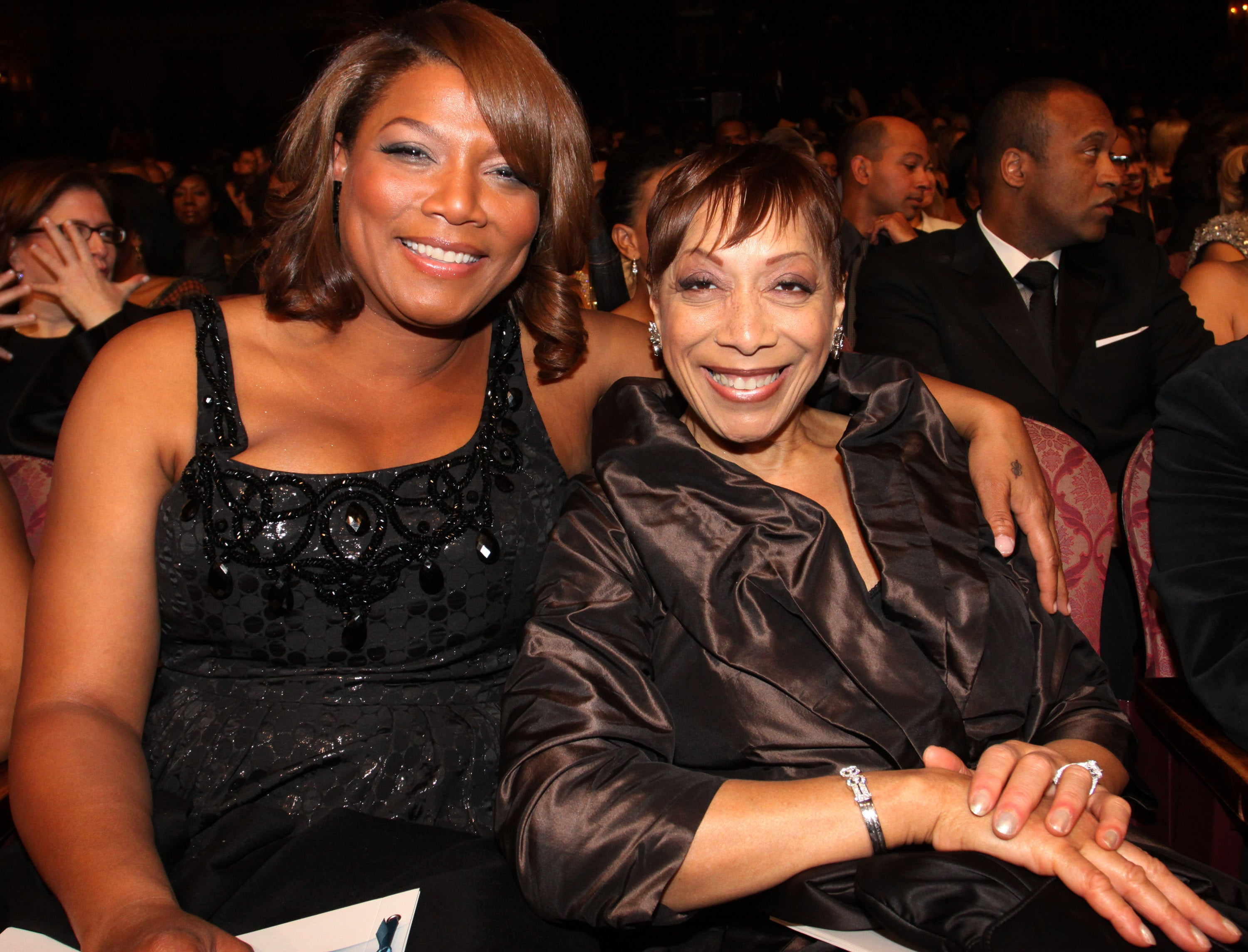
Queen Latifah’s late mother Rita Owens may be gone from the physical world, but the star still feels her presence in everything she does.
In the midst of filming her new high-octane CBS drama The Equalizer, back in her home state of New Jersey, Queen Latifah, 50, sat down with PEOPLE for this week’s cover story and tribute to Black trailblazers in entertainment and beyond.
Speaking candidly on the new PEOPLE Every Day podcast, she opened up about her unique journey through hip-hop and Hollywood — and how her mother’s love has been there every step of the way.
“She was always an encouragement,” she says of Owens, who she lost in 2018, following a long battle with the autoimmune disease scleroderma. The two were famously close and her mother’s death was a crushing blow for the star, who says “everything queenly about me came from my mother.
Owens served as Queen Latifah’s biggest cheerleader throughout her entire career, even accompanying her to late night club performances when she was only 17.
“She believed in us as youngsters,” she says of her mom supporting her and her friends as they formed hit early 90s hip-hop collective Flavor Unit. “That made a big difference, having an adult who believes in this new burgeoning kind of music that you’re doing, not just as a form of music, but as a form of you using your mind, your voice, your talent, and having some direction,” says the star.
Thinking back, “When everything was too heavy for me to bear, I would disappear and call my mother,” she says. “She had a calmness about her that could calm you down when you were at a 10.”
Being back home and filming in around Newark, New Jersey, has the star feeling closer to her childhood than ever.
“It’s just surreal, almost, with shooting on streets that I grew up on,” she says. “Places that are so close to my heart. This is visceral when we shoot here.”
Another thing that’s visceral: sensing her mother’s presence.
“She still talks to me. I know it’s going to sound crazy, but I get little signs. Lights will blink. Things will flicker,” she says. “People will come into my life that I don’t know where they came from, but they become very helpful.”
Owens, who was a beloved public high school teacher, left her mark on countless others as well.
“She made such a big impact, not just on my life, but on thousands of students whose lives she changed over her 25 years of teaching — kids who thought they had no future until they met Mrs. O. and she called them by their names and told them that they can be whatever they wanted to be,” she says. “And they may not have ever heard that message before.”
For that reason and many others, “her memory is everywhere I go,” she says.
These days, “when I’m in her house, I just look around at the beauty she curated and all of the African art on the walls. I’m like, ‘Mom, you really, really thought about these things in a beautiful way.’ She’s in my fiber.”
